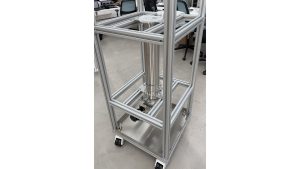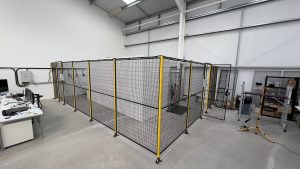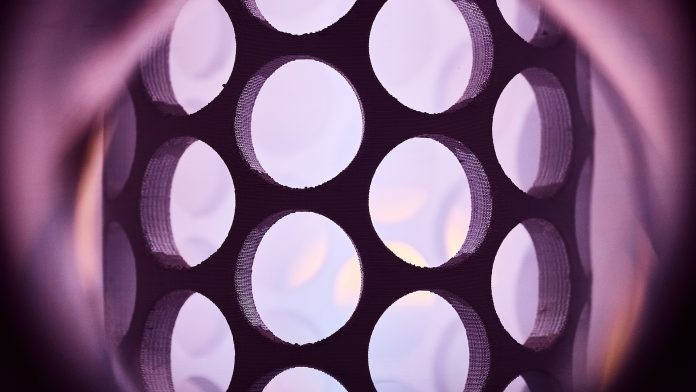Astral Systems is addressing the impending shortage of life-saving medical isotopes in the nuclear medicine industry through its groundbreaking isotope production technology.
With its discovery in 1896 by Henri Becquerel, followed shortly after by the pioneering research of Marie Curie and her husband Pierre Curie, radioactivity has maintained a position of great interest in both the scientific community and the public. When most think of radioactivity, the mind is drawn to nuclear power, or the damaging effects of radiation.
Radioactive material is dangerous because it can damage cells and human DNA. However, what makes it dangerous also makes it excellent at killing cancer if you can get it to where it needs to go.
Few people initially think of nuclear medicine when radioactivity is mentioned. However, nuclear medicine has been an integral part of the story of radioactivity since the discovery of artificial radioactivity in 1934 at the Oak Ridge National Laboratory.
The ability to use radioactive materials to fight cancer and destroy tumours was a giant leap forward in medicine. In many ways, this is thanks to the movement sparked by the Atoms for Peace speech by Dwight D Eisenhower in 1953, which drove scientists, policymakers, and the public towards using fission outside of nuclear weapons and power.
Power, weapons, and medicine
Arguably, one of the most significant advancements in radioactivity was the invention of the cyclotron at UC Berkeley. A cyclotron is a particle accelerator, able to accelerate charged particles at incredibly high speeds before directing them into a target material at sufficiently high energies that nuclear reactions can take place and new elements and isotopes can be formed. This cyclotron at UC Berkeley alone has led to the discovery of 14 new elements.
Cyclotrons are now relatively commonplace, with over 1,500 used to produce nuclear medicine worldwide. This growth in cyclotrons has brought nuclear medicine to millions of people not previously able to access the once very specialist treatment, now with over 200,000 Positron Emission Tomography (PET) scans conducted in the UK each year.

While cyclotrons have brought nuclear medicine to millions, they are limited in the range of isotopes they can produce. They are traditionally limited to producing short-lived isotopes used for imaging and diagnostic procedures due to their limited energy capabilities.
In recent years, there has been a growing interest in molecular radiotherapy (MRT), whereby an alpha or beta-emitting isotope is chemically linked to a targeting molecule such as a protein or antibody. This targeting molecule passes through the body until it reaches the desired location, such as a tumour cell, where it binds. The chemically linked isotope then radioactively decays, releasing its energy into the tumour and killing the cells.
Recent clinical trials in these molecular radiotherapy treatments have shown very encouraging results. However, one of the most significant challenges to this type of treatment is the availability and supply of therapeutic isotopes.
These isotopes are primarily produced in special-purpose nuclear fission reactors, of which there are only a few in the world. Most of these special-purpose reactors are scheduled for decommissioning by the end of this decade.
The UK Government published a report acknowledging that two-thirds of the global production of therapeutic isotopes will go offline by 2030. This will result in millions of people losing access to, or at least having significantly delayed, cancer diagnostic and therapeutic procedures.
Current supply issues are already contributing to cancer being detected at later stages than pre-COVID. Due to the physics of radioactive isotopes, they cannot be stockpiled due to their radioactive decay. Isotopes used in nuclear medicine typically have a half-life of 20 minutes up to a maximum of eight days. This means that isotopes must be used after production as soon as possible, with little to no room for transport delays or storage.
Combining a reduced supply of therapeutic isotopes and increasing demand through clinical research and new therapy approval leads to ever-increasing supply shortages. Such shortages have been seen in the past due to scheduled maintenance leading to delays and cancellation of life-critical nuclear medicine procedures. During a five-month prolonged shortage over Christmas 2022, a significant number of children in Wales had their thyroid cancer treatment cancelled and were moved onto less effective therapies.
Unfortunately, building new fission reactors is very slow and expensive; it’s challenging to convince governments to build them for energy, let alone medicine.

Astral Systems enables isotope production
Technology developed by the team at Astral Systems enables the production of neutron-produced therapeutic isotopes (usually produced in large fission reactors) in small modular fusion reactors. This has been achieved by significantly increasing the neutron flux of their fusion reactors with a process termed Multi-State Fusion (MSF); it elegantly prompts fusion in two states of matter simultaneously: within a solid and plasma.
99% of the sun’s fusion power comes from deep within its core. Here, it’s more akin to a dense conductive metal than a plasma. This isn’t just a theory. In 2020, NASA demonstrated that it is easier for fusion to take place within a solid material than in a plasma. Astral’s work brings this discovery into an industrially tried-and-tested commercial compact fusion reactor.
By introducing fusion in a solid and plasma simultaneously, the efficiency of these systems increases by over a factor of ten with minimal increased cost and no additional power. These compact systems can now produce nuclear medicine at scale and economically.
The Astral team set up three fusion facilities in the UK within the last year, demonstrating how rapidly such sites can be set up in academic settings, rural areas, and cities. Such sites represent a paradigm shift—an opportunity to bring production closer to patients, enhancing access, reducing costs, and sidestepping the vulnerabilities of centralised supply chains.
This scalable model isn’t just for the UK. It’s a template for international adoption, offering a lifeline to countries like Nigeria, where burgeoning cancer rates clash with the absence of a nuclear program. Astral’s fusion approach promises a safe, affordable, and reliable alternative, democratising access to treatments that were once out of reach for many.
Astral Systems’ to impact the nuclear medicine industry
Astral Systems’ plans in the coming year are ambitious but sure to impact the field of nuclear medicine. They are building an I-131 production facility in Bristol, capable of producing 200+ GBq/week (Giga Becquerels, named after the discoverer of radioactivity). This would satisfy 50% of the UK’s current clinical I-131 requirement. I-131 is the most widely used isotope for MRT, accounting for almost 50% of all MRT treatments in the UK.
Production of I-131 in the UK would significantly reduce the need to import I-131 from Europe or elsewhere. Eliminating customs checks, reducing transport time, and ultimately providing more reliable delivery of I-131 to radiopharmacies throughout the UK.
Beyond the production of I-131, Astral is also looking to produce Ac-225, an alpha-emitting radioisotope rapidly gaining momentum in research and early clinical studies of novel MRT therapies. Supply of Ac-225 is currently very limited throughout the world, with many questions about future supply.
Fortunately, Ac-225 production lends itself well to Astral Systems technology, meaning it can be produced in tandem without any modification to Astral’s I-131 production infrastructure.

The fast-growing and arguably most fashionable radioisotope for MRT is currently Lu-177. This is also within Astral’s sights in the coming years. However, modification to the reactor design is necessary to account for the smaller cross-section of Lu-177; the team plans to have a large production facility up and running in the next three to four years to meet the growing demand for this radioisotope.
Astral Systems is not limiting itself to the UK; once the initial I-131 production facility is up and running in the UK, the team plans to replicate the model in other countries around the world, primarily those with strong nuclear medicine communities, but with limited access to therapeutic radioisotopes.
Aside from more extensive production facilities, the team has strong academic links and is eager to see the technology used in ways they have not yet imagined. Plans to establish smaller research reactors in universities and academic research centres around the world will allow these centres to produce bespoke doses of therapeutic isotopes for research purposes and experiment with novel radio isotopes for nuclear medicine and beyond.
But Astral isn’t stopping at medical advancements. It is also exploring ways to make fission more attractive by decreasing the lifetime of problematic high-level waste, with ARPA-E in the US hosting workshops on the topic. Even NASA is considering a hybrid fission-fusion system to explore the icy moons of our solar system, like Europa, to discover the first extra-terrestrial lifeforms.
It’s an exciting time for us, and we are witnessing a renewed interest in fission and fusion power as climate issues take centre stage. With the industry expanding, it will be interesting to see how nuclear technology continues to evolve, with complementary advancements in fission and fusion leading the charge towards new horizons.
Whether in our hospitals or on distant planets, the nuclear industry keeps pushing the boundaries; watch this space!
Please note, this article will also appear in the seventeenth edition of our quarterly publication.





